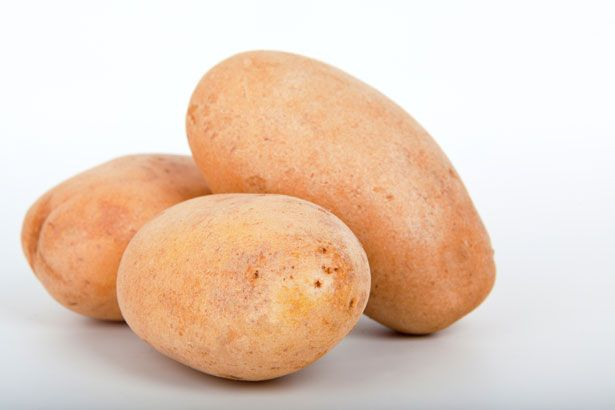Genetic Detoxification: Scientists Remove Natural Poisons In Potatoes

"One gene to rule them all, and in the darkness bind them"... is the theme of a new study on naturally occurring toxins in potatoes called "steroidal glycoalkaloids" (SGAs). It reveals a new group of genes responsible for the production of these poisons, which can cause gut irritation, and a master gene that governs them all.
The findings, reported today in Science, showed that the domestication of fruits and vegetables eradicated most bitter flavors and anti-nutritional compounds from common produce, but SGAs are one group of compounds that persisted despite attempts to 'tame' food crops through breeding and selection. The toxins are still found, albeit at low levels, in potatoes and other members of the Solanaceae family like green tomatoes, red tomatoes, and eggplants.
Today, most incidents of SGA poisoning end with an upset stomach or headaches, but fatal cases have occurred in the modern era of domestic agriculture.
An international collective of scientists has isolated 10 genes responsible for the production of SGAs in Solanaceae plants. To do this, they compared the genetic profiles of a tomato and a potato, and looked for genes that overlapped.
All of the resulting "GAME" genes, short for GlycoAlkaloid Metabolism, factored into the synthesis of these toxins, but one stood out from the rest: GAME4.
When GAME4 was removed from tomatoes or potatoes via genetic engineering, the authors recorded a 74-fold drop in SGA toxin levels. They proposed that GAME genes are arranged in a heiracrhy when it comes to generating SGA toxins, and GAME4 is critical for an essential middle step in the assembly line.
Questions remain as to whether removing GAME4, via genetic modification or more classical breeding strategies, could harm the plants. SGAs make vegetables less desirable to herbivores in general, so lacking GAME4 may make them more susceptible to plunder by varmints.
The authors of this study hailed from the Weizmann Institute of Science (Israel), the CSIR-National Chemical Laboratory (India), and Wageningen University and Research Centre (The Netherlands).
Source: Itkin M, Heinig U, Tzfadia O, et al. Biosynthesis of Antinutritional Alkaloids in Solanaceous Crops Is Mediated by Clustered Genes. Science. 2013.



























